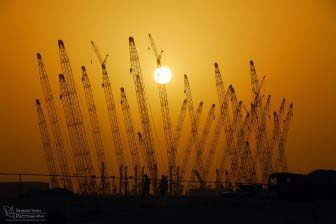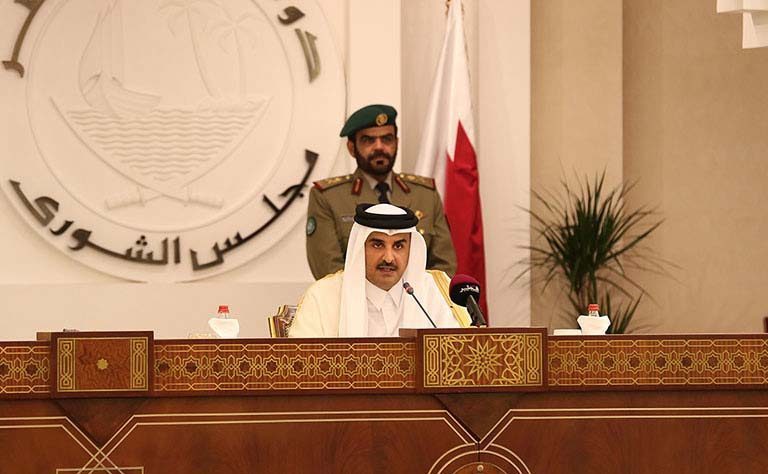
After enjoying years of record-breaking surpluses, Qatar will likely see budget deficits this year and beyond as government spending looks set to outpace revenues, a new report has found.
That means the nation will face more pressure to reduce spending on projects and programs unrelated to the 2022 World Cup.

Qatar is not alone in that government revenues around the Gulf have taken a hit from falling oil prices, which influence the price of natural gas.
But the recent slide comes at an inopportune time, as Qatar is spending billions of riyals on transportation, infrastructure, real estate and stadium projects in preparation for the international football tournament.
According to Qatar National Bank (QNB), the nation is expected to run a deficit equivalent to 2.2 percent of GDP this year amid low oil prices and rising capital spending. Using QNB’s economic stats, that works out to roughly US$3.91 billion.
By 2017, that’s expected to rise to 3.7 percent of GDP, or $8.51 billion.
Qatar last ran a deficit in 1999-2000, according to records kept by Qatar Central Bank.
Significant turnaround
By global and regional standards, Qatar’s projected deficit figures are modest. Within the GCC, for example, Oman’s deficit is expected to hit 8 percent of GDP this year, while economists predict that Bahrain will run a deficit equivalent to 9.3 percent of GDP.

Many economists believe that Qatar’s low debt levels and large financial reserves will help it easily weather a period of low oil prices.
Meanwhile, the QNB report also forecasts that the country’s economy will pick up steam in 2015.
Real GDP growth will accelerate from 6.5 percent last year to 7 percent in 2015 primarily due to construction spending on large infrastructure and development projects.
Still, running a deficit is nevertheless a significant turnaround for the Gulf state, which has run surpluses for several years in large part by making conservative estimates of the price of oil.
This created a financial cushion for the government and allowed it to absorb cost overruns.
In 2013-14, for example, government expenditures were more than 9 percent – or QR21 billion ($5.78 billion) – higher than budgeted, according to the Qatar Central Bank.
No waste
A budget deficit will likely increase pressure on officials to manage state funds more tightly – a message that’s already been delivered by Qatar’s Emir.

In an address to Qatar’s Advisory (Shura) Council in November, Sheikh Tamim bin Hamad Al Thani said:
“Waste, extravagance, mishandling of state funds, lack of respect for the budget, reliance on the availability of money to cover up mistakes are all behaviors that must be disposed of, whether oil prices are high or low.
Reasonable spending is an economic matter … (and is) also related to the type of society that we want and the type of individual that we rear in the State of Qatar.”
The Emir’s comments followed a warning from the International Monetary Fund that Qatar needed to operate more efficiently to prevent cost-overruns and construction delays.

Recently, it was reported that Qatar was shelving plans for the multibillion-dollar Sharq Crossing amid fears that its scheduled 2021 completion date being too close to the start of the World Cup.
Additionally, there are concerns that the country’s construction sector is overheating due to the number of highways, rail lines and real estate projects concurrently being built that’s leading to rising prices for raw materials.
These factors are believed to have prompted officials to reschedule some 15 percent of its development projects last year, according to a Reuters story at the time.
Elsewhere, there are signs that the country is reigning in spending on cultural programs.
While no figures have officially been disclosed, the budgets of Qatar Museums and the Doha Film Institute, among other organizations, are believed to have been drastically reduced.
Thoughts?







